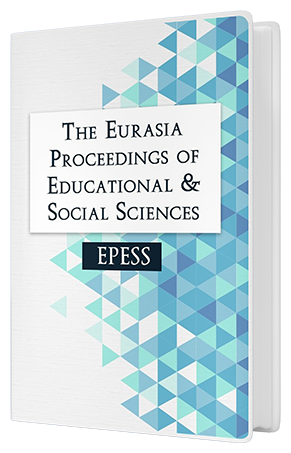The Effect of Using SMART Board to the 7th Grade Students’ Attitudes toward the Environment in Human and Environment Unit
Keywords:
Human and environment, Smart board, Environmental attitude, Science teachingAbstract
In this study, the effect of SMART Board usage in the 7th grade Human and Environmental unit was investigated on students’ attitudes toward the environment. For research; two middle schools were used in Konya Province Hadim District. One of the schools was chosen as the control group and the other was chosen as the experimental group. The Environmental Attitude Scale was used as data collection tools. For 4 weeks, the students in the control group processed the Human and Environmental unit according to the traditional methods while the students in the experimental group were processed using the same unit smart board activities. The Environmental Attitude Scale was applied as a pre-test to determine the students' attitudes toward the environment before the application started. After the application was completed, the same test was applied as a post-test to determine the students' attitudes towards the environment. The obtained data were analyzed with SPSS 22 statistical package program and t-test was used in the evaluation of the obtained data. As a result of the analysis of the post-test data of the Environmental Attitude Scale, although the score of the experimental group was higher than that of the control group, there was no statistically significant difference between the experimental group and the control group. Therefore, it has been found that the use of SMART Board has not been effective in improving students' attitudes towards the environment.Downloads
Published
Issue
Section
License
Copyright (c) 2018 The Eurasia Proceedings of Educational and Social Sciences

This work is licensed under a Creative Commons Attribution-NonCommercial-ShareAlike 4.0 International License.
The articles may be used for research, teaching, and private study purposes. Any substantial or systematic reproduction, redistribution, reselling, loan, sub-licensing, systematic supply, or distribution in any form to anyone is expressly forbidden. Authors alone are responsible for the contents of their articles. The journal owns the copyright of the articles. The publisher shall not be liable for any loss, actions, claims, proceedings, demand, or costs or damages whatsoever or howsoever caused arising directly or indirectly in connection with or arising out of the use of the research material. All authors are requested to disclose any actual or potential conflict of interest including any financial, personal or other relationships with other people or organizations regarding the submitted work.




